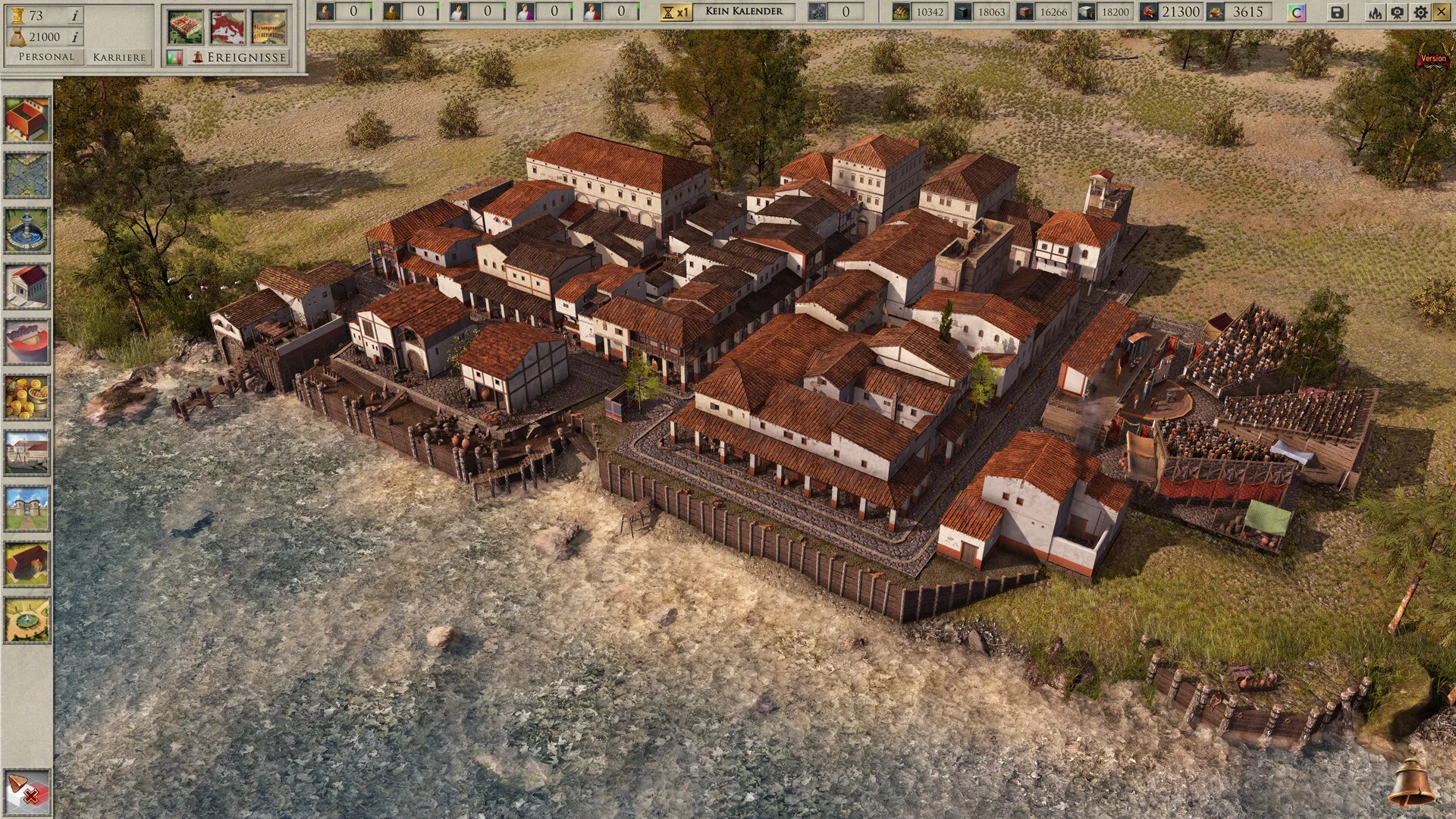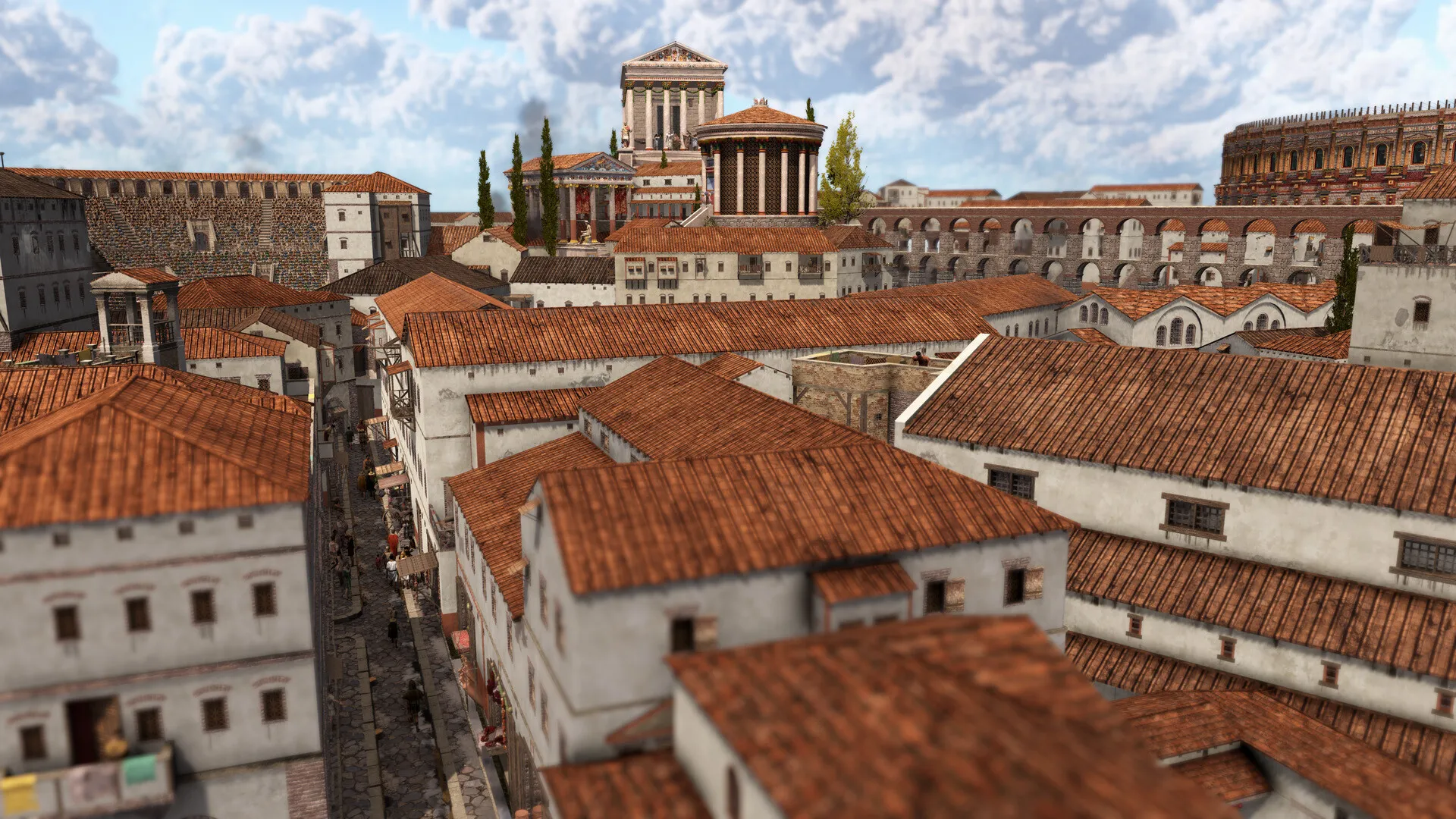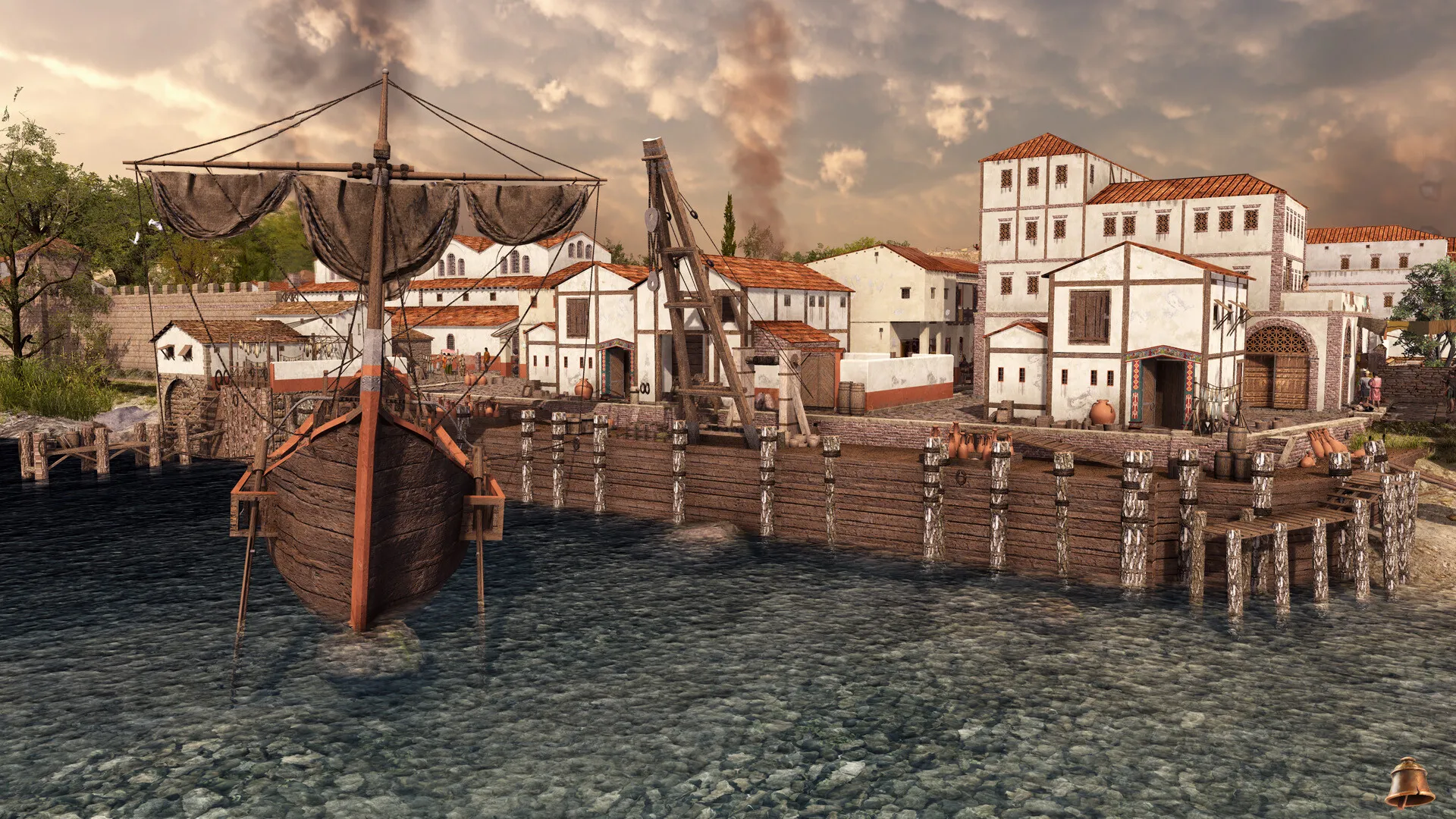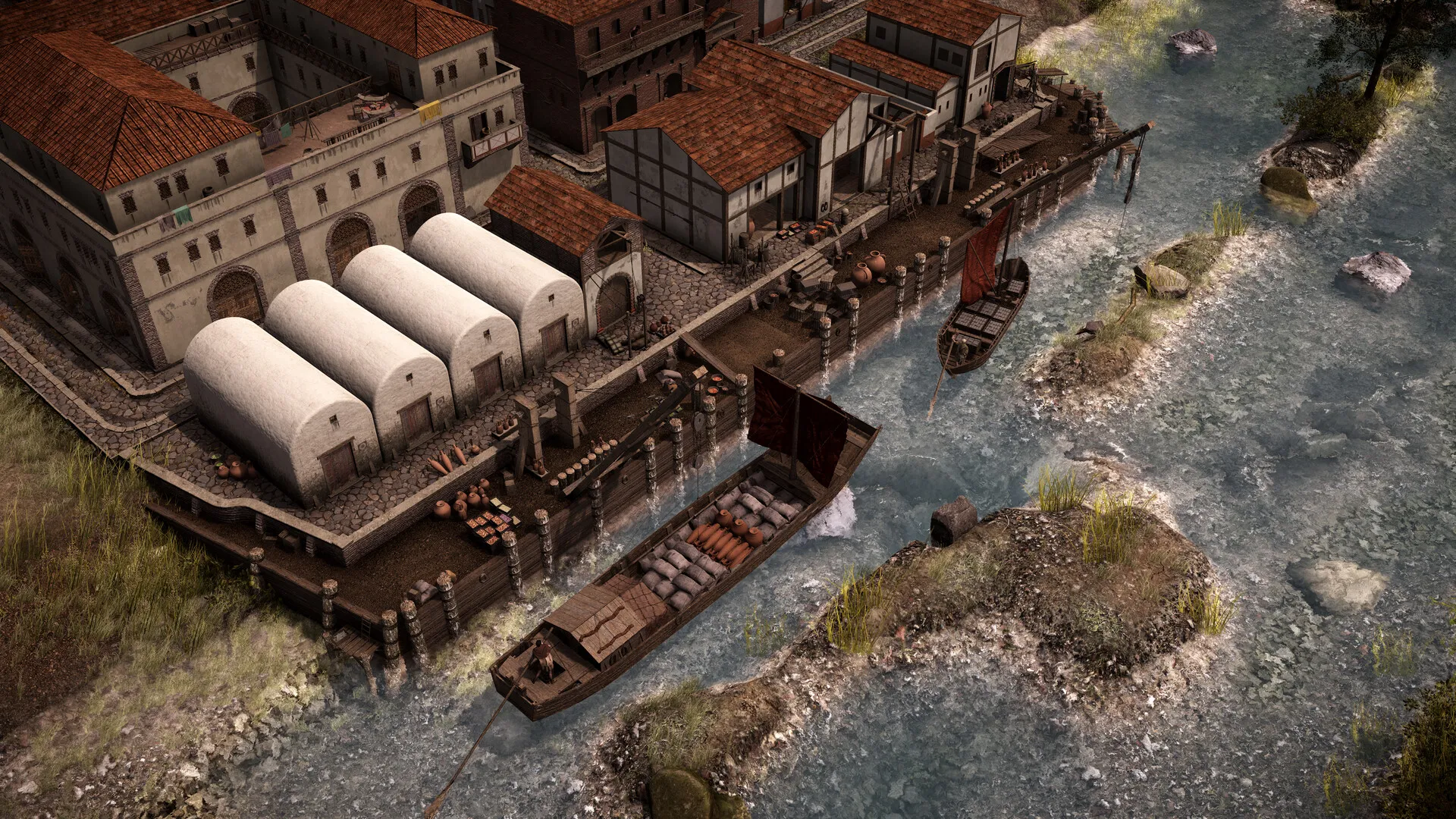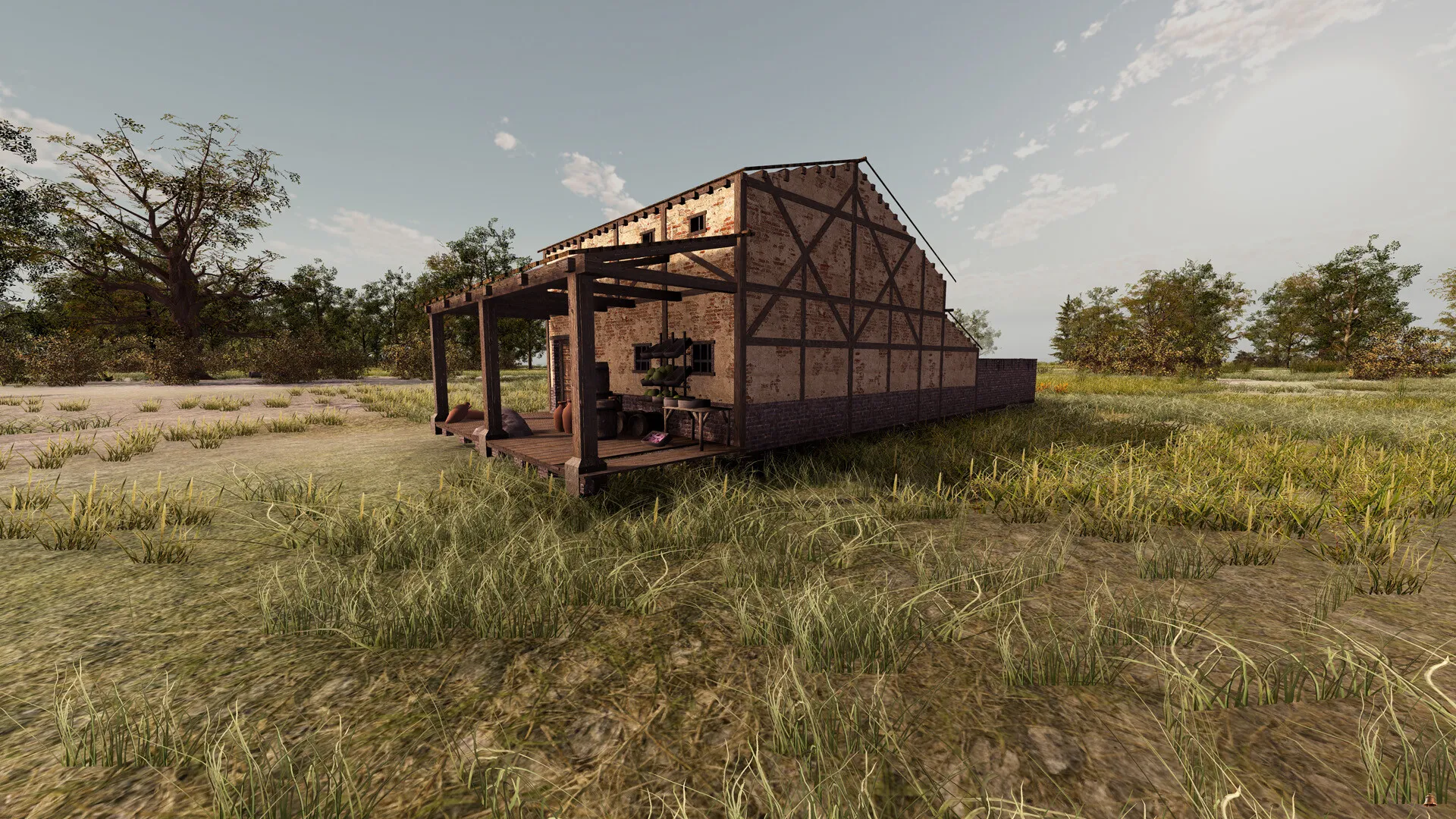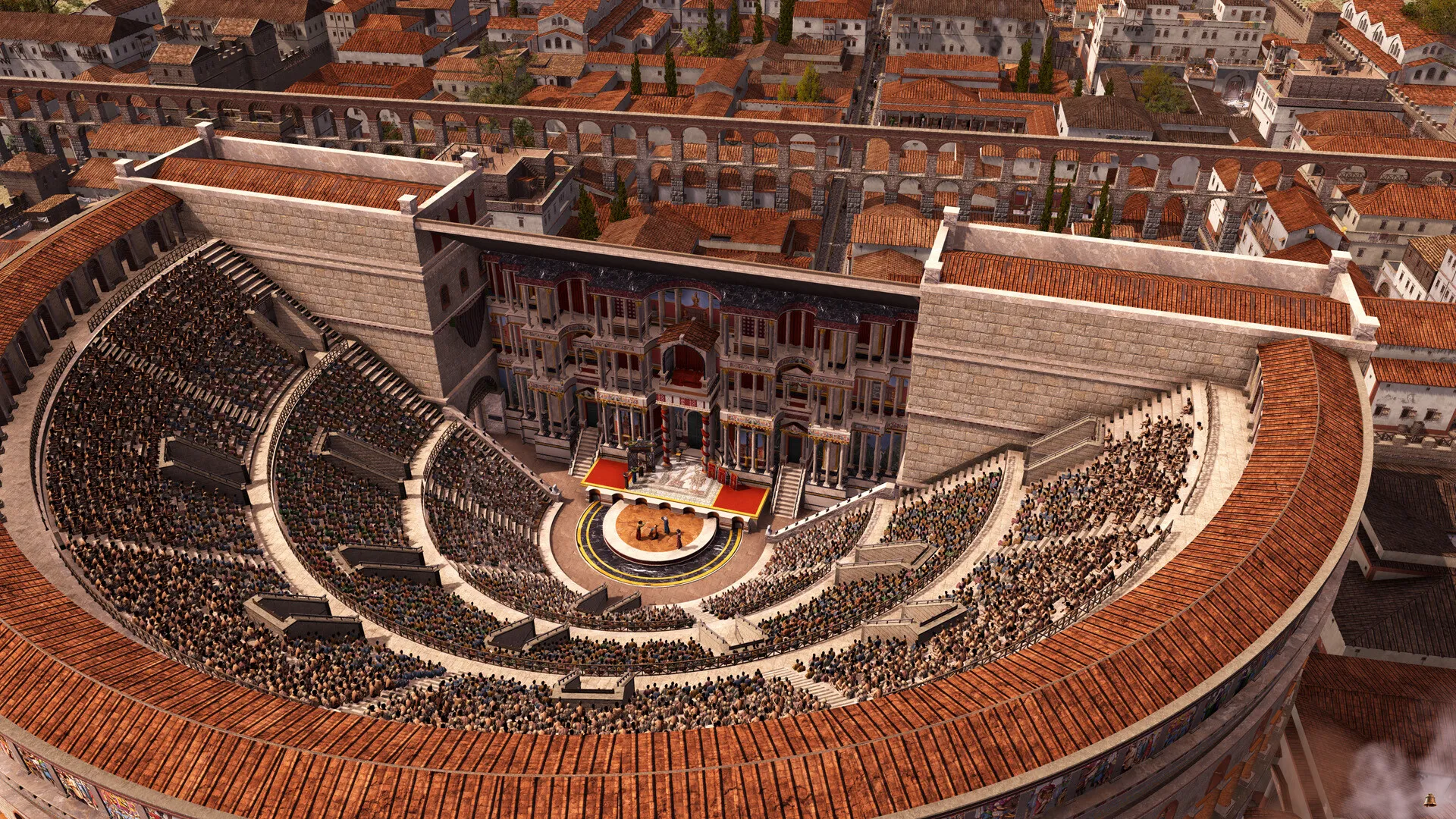Pax Augusta arrives as a singular undertaking, crafted by Swiss developer Roger Gassmann over more than five years. This ancient Roman city-builder invites players to step into the sandals of a provincial governor appointed during Emperor Augustus’s reign. From the first tiled roof laid on a humble settlement to the aqueducts channeling fresh water through grand palaces, every element reflects a commitment to historical detail seldom seen outside major studio productions.
In this role, you balance municipal growth with political ambition. Your task list spans securing tax revenues, expanding trade networks, and financing your career back in Rome. Failure to meet civic needs—whether securing grain for the poorest citizens or erecting baths for the elite—can lead to population decline or, in the campaign, exile. Unlike many modern city-builders that emphasize combat or complex production chains, Pax Augusta concentrates on authentic urban design and the social mechanics that drove imperial expansion.
Three distinct playstyles await: a narrative-driven campaign rich with moral choices, a sandbox mode for unfettered creativity, and a free career mode blending stakes with open-ended strategy. Each draws on Gassmann’s modular construction system, which layers strip houses, forums, and temples with remarkable flexibility. Through measured planning and political maneuvering, Pax Augusta challenges builders to forge thriving cities and forge personal legacies in Rome.
Vision Born of Solitude
Roger Gassmann set out in 2018 with a six-month roadmap to recreate Rome’s grandeur, only to find himself five years deep into a one-man odyssey. That extended timeline reflects both the passion driving Pax Augusta and the technical hurdles of solo development. Early prototypes focused on basic grid placement; successive iterations layered in modular insulae, forums and aqueducts, each vetted against archaeological research. While studios often outsource art and simulation, Gassmann carried every responsibility—from 3D modeling to code optimization—resulting in a product that wears its independent origins proudly.
Gassmann’s guiding principle favored authenticity over spectacle. Instead of chasing photorealism, he prioritized correct proportions for Roman villas and accurate civic layouts informed by Caesar III and the historical precision seen in Manor Lords. Systems such as patron-client interactions appear as concise text windows rather than cinematic cutscenes, reinforcing the game’s scholarly tone. Trade and taxation mechanics echo Anno’s emphasis on resource chains, yet they remain sufficiently streamlined to keep the focus on construction.
Ambition extends beyond mere sandbox play. While the free-build mode invites diorama enthusiasts to experiment with densely packed urban blocks, the campaign introduces stakes through moral dilemmas and a single-save structure that raises tension. This dual design appeals to both city-builder veterans craving open-ended creativity and history buffs drawn to narrative context—ensuring Pax Augusta feels like both an architectural workshop and a living Roman province.
Core Gameplay Mechanics
Building in Pax Augusta hinges on a strict grid system where every structure must connect to a road before walls rise. This constraint mirrors Manor Lords’ emphasis on road-centric placement, though Gassmann’s implementation feels tighter: you cannot drop a villa and then carve a path around it, a limitation that enforces thoughtful planning. Modular architecture lends variety—strip houses grow into multi-story insulae, while forums and markets expand through contiguous building zones. These elements create both organic-looking districts and rigid Roman street patterns that reward meticulous layout.
Behind these facades lies a resource model blending simple production queues with open-market imports. Unlike Anno’s complex chain of factories or Caesar III’s layered granaries, Pax Augusta lets you purchase most raw materials, freeing attention for civic design rather than micromanagement. Tax revenue flows directly from citizen satisfaction: if bakeries and aqueducts meet needs, population rises; more residents generate higher tax yields, which you reinvest in new zones or channel into your political ambitions.
Citizens evolve along a tiered social ladder—Liberti in humble dwellings, Cives enjoying local bakeries, and Senators demanding grand baths and theaters. Each class unlocks fresh building types: low-tier gardens supply food for strip-house neighborhoods, while elite districts require monumental colonnades and private brothels for leisure. This progression feels reminiscent of Pharaoh’s class-driven demands, yet Pax Augusta’s text-driven needs messages read like dispatches from Tacitus, deepening immersion.
Political ascent intertwines with urban growth. Financing villas and public works in your provinces unlocks speeches in Rome, granting access to advanced structures. Patron-client prompts appear as concise notifications rather than cinematic sequences, reinforcing the transactional nature of power. Every investment in aqueduct maintenance or public festival carries weight both in your city and your standing at the Emperor’s court.
Performance and Interface Realities
Pax Augusta demands more horsepower than its modest visuals imply. On a high-end rig, loading screens stretch noticeably longer than in Anno 1800, and cooling fans spin up as CPU and GPU strains peak during city expansions. Frequent reports of crashes, coupled with sparse auto-saves, echo the instability that Manor Lords users endured at launch—forcing players to restart entire sessions after minor glitches. An intermittent recovery option flags unsaved progress only after the next launch, rather than safeguarding during play.
Navigating menus reveals a clear design ethos but occasional ambiguity. Resource tooltips pop up promptly, yet production chains offer no diagnostic hints when output stalls. Builders familiar with Pharaoh or Caesar III will recognize the streamlined approach, yet may miss explicit error callouts that those titles provided. The in-game tutorial covers basic placement and taxation but falls silent on advanced mechanics, leaving gaps that require trial and error.
Construction controls feel precise but limiting. Mandatory road-first placement ensures realistic street grids, yet prevents experimental layouts where one might wish to retrofit roads around existing structures. Photo mode allows close inspection of facades and modular details, but camera rotation can become choppy in densely built districts.
Real-time feedback hinges on colored icons above residences indicating worker contentment. However, when happiness dips and production grinds to a halt, the absence of contextual alerts forces manual inspection of each facility. That lack of explicit error messaging can stall progress for prolonged stretches.
A Canvas of Roman Authenticity
The architectural fidelity in Pax Augusta rivals what fans saw in Manor Lords but shifts focus from medieval hamlets to imperial grandeur. Every structure—from modest strip houses to towering insulae—bears historically accurate proportions drawn from archaeological sketches. Modular adornments let you attach marble fountains, walled gardens or colonnaded arcades onto residential blocks, recalling the design flexibility of Pharaoh’s temples without its rigid symmetry.
Natural elements reinforce immersion. Terrain textures capture the dusty hues of Gaul and southern Britain, while rivers glisten beneath aqueduct arches that curve elegantly over valleys. The overworld map, though simpler than Total War’s strategic overlays, presents provinces in muted tones that distinguish agricultural lands from forested frontiers. Its navigational cues remain clear: carriage paths highlight your governor’s route, albeit without fast-travel shortcuts found in modern city-builders.
Audio layers add depth. Optional voice-overs in English, German or Gassmann’s native Zurich dialect give text prompts a personal touch, echoing the intimate narration in Crusader Kings II. Crowd murmurs drift through forums, and distant cart wheels grow louder on stone roads—an homage to Caesar III’s ambient sound design—reminding you that urban noise once drove Augustus to curfew decrees.
Cultural rituals unfold through succinct text windows: requests from patrons, temple dedications to Jupiter, festival announcements. These vignettes steer clear of cinematic bombast, presenting Roman social systems matter-of-factly. When a neighbor lord demands tribute or a festival calls for flute players, you sense that each decree carries weight in this meticulously crafted world.
Modes of Governance and Play
The story campaign casts you as a novice governor, fresh from Rome and eager to prove your worth. Through text-driven vignettes, you learn of your family’s standing and the Emperor’s expectations—one misstep can trigger exile under a single-save system that heightens every decision. Moral and economic choices punctuate your tenure: will you divert taxes to rescue your mother from debt collectors or invest in aqueduct maintenance for civic health? This tension recalls the high-stakes dilemmas in Frostpunk’s narrative mode, where each choice carries irreversible weight.
Sandbox mode strips away political pressure, granting unlimited resources and creative freedom. Here, Pax Augusta becomes a true diorama-builder: you can cluster insulae around grand temples, experiment with forum layouts, or stage mock spectacles with the built-in fire button. City Skylines players familiar with unrestricted maps will appreciate the modular building kits, though they’ll find the mandatory road grid more disciplined than many free-form designs.
Free career mode bridges both extremes. You pursue personal advancement in Rome while retaining budgetary control over your provinces. On the overworld map, you dispatch Vitruvius to scout ideal aqueduct crossings or recruit gladiator troupes for public games—an element that echoes Mount & Blade’s world map interactions. Administrator delegation lets you leave a city under AI control, yet limited fast-travel options mean you must plan carriage routes carefully. Each voyage deepens your ties to the Empire, making every strategic decision resonate across provinces and in the Senate.
Balancing Ambition and Adversity
Mastering Pax Augusta begins with a measured learning curve. The tutorial lays out basic building and taxation but abandons guidance once you unlock advanced mechanics, leaving players to troubleshoot production chains through trial and error. When wood harvests stall without explanation or tooltips fail to clarify zero output, you revisit the same menus repeatedly—an experience familiar to fans of early Banished releases wrestling with opaque UI feedback.
Difficulty spikes can arrive without warning. A single harvest failure may trigger food shortages, prompting farmers to abandon fields rather than toil through hunger. That cascade mirrors the death spirals in Frostpunk’s survival zones, forcing last-minute shifts from civic expansion to crisis management. In campaign mode, exile mechanics amplify pressure: a political misstep or bankrupt treasury ends your reign, turning every festival and aqueduct repair into a potential gamble.
Emergent scenarios add unpredictability. Provincial uprisings, natural floods, or sudden trade sanctions on grain reveal cracks in even the most meticulous layouts. Randomized challenges echo the dynamic events of Anno 1404, where each island presents unique resource bottlenecks and diplomatic quandaries.
Replayability hinges on your appetite for sandbox creativity versus structured progression. While the free-build mode invites endless diorama-style experimentation, the campaign’s finite map size and singular save can limit long-term goals. However, expanding into new territories and experimenting with novel city plans restores that drive, offering fresh motivations to revisit the Roman frontier.
Outlook and Community Momentum
Pax Augusta’s solo development model means updates arrive steadily but thoughtfully. Early patches have addressed critical crash bugs and refined UI layouts, leading to smoother build sessions—an approach reminiscent of Manor Lords’ post-launch optimization. Continued optimization patches promise to ease load times and improve auto-save reliability.
Modding potential remains high. With its modular building assets and clear file structures, enthusiastic players could craft custom insulae variations or themed scenarios. Games like Caesar III saw vibrant fan-made map packs, suggesting Pax Augusta might cultivate a similar ecosystem if official mod tools are released.
Gassmann maintains an open dialogue on Steam forums and Discord channels, gathering player feedback for planned features such as expanded map sizes and enhanced world-map navigation. His transparent roadmap outlines upcoming additions to trade mechanics and UI tooltips—changes that directly respond to community requests.
Long-term engagement hinges on this support. While the campaign offers finite challenges, a devoted niche of history buffs and city-builder veterans can sustain interest through sandbox experimentation and shared custom content, ensuring Pax Augusta evolves far beyond its initial release.
The Review
Pax Augusta
Pax Augusta delivers an authentic Roman city-building sandbox that shines in architectural detail and historical fidelity but stumbles under technical hiccups and opaque UI feedback. Its solo-developer ambition brings a focused vision, yet optimization and stability issues can derail immersion. For players who relish planning ancient metropolises and embracing strategic challenges, it offers rich rewards.
PROS
- Highly detailed, historically accurate building models
- Flexible modular construction system for creative layouts
- Engaging tiered citizen needs and political progression
- Multiple modes catering to both narrative and sandbox play
- Immersive audio touches, including dialect voice-overs
CONS
- Performance hiccups under heavy city loads
- Limited feedback when production chains stall
- Occasional crashes and sparse auto-save points
- Mandatory road-first placement can feel restrictive









































